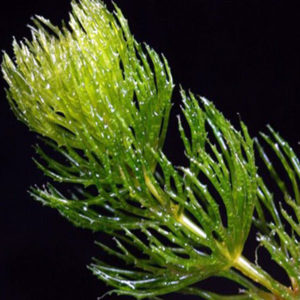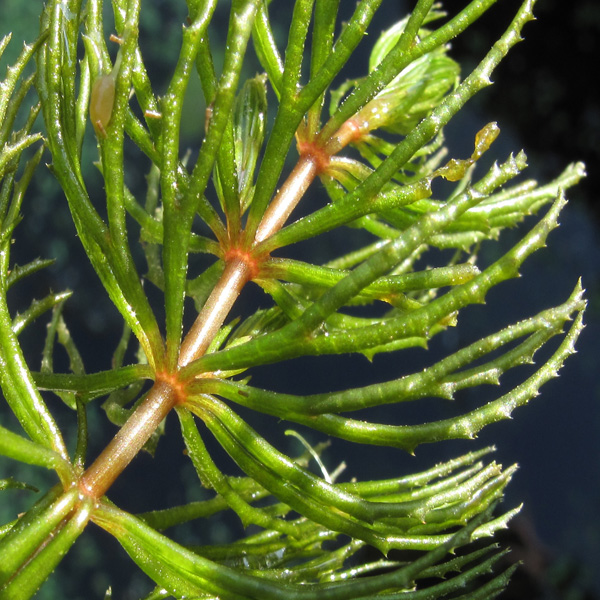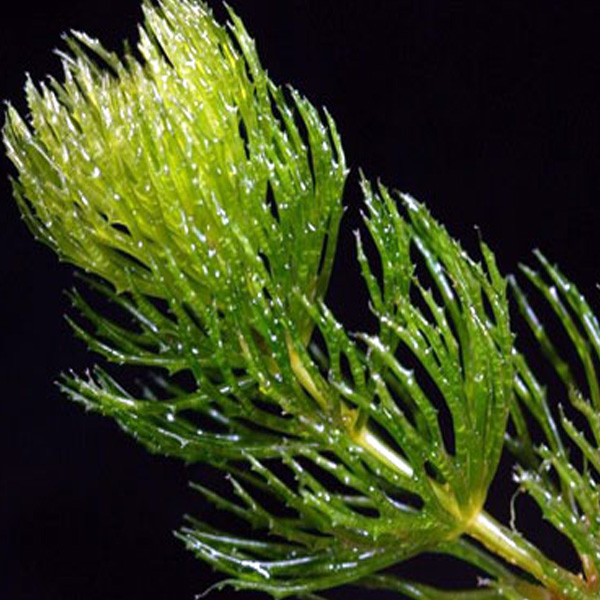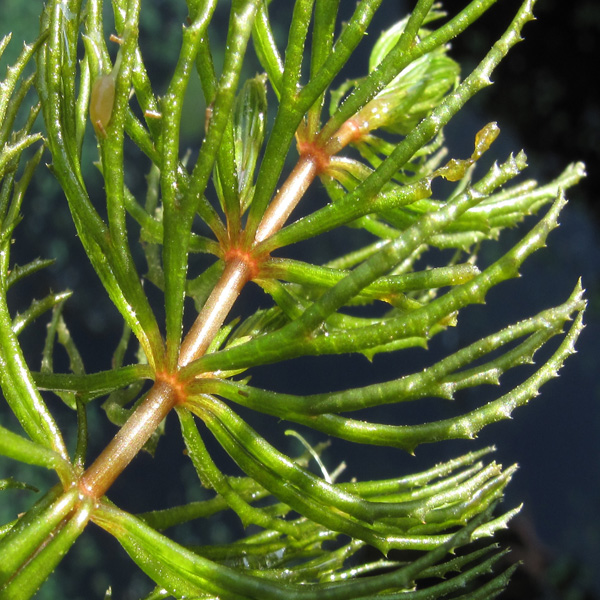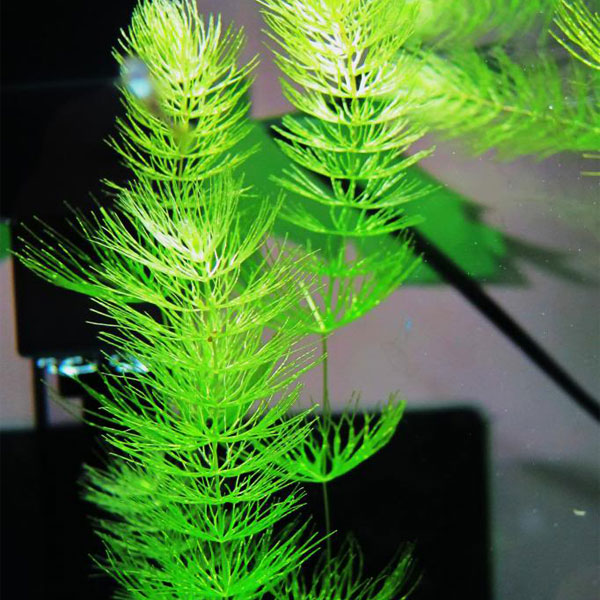Hornwort
weed identification
Hornwort is a submerged plant with the base of its stem buried in the bottom layer of the water body. It does not have roots hence it can easily be displaced and its buoyant stems can become free-floating. The leaves of the plant are dark green and form whorls. It can grow deeper depths than some weed species.
Commonly found in stagnant and slow-moving water bodies such as ponds, dams and streams.
Propagation occurs by fragments, the plant is prone to fragmentation due to its brittle stems.
Fragments and winter buds are easily displaced by contact with waves, animals and boats.
In its native ecosystems, it rarely causes problems when its in balance with the ecosystem. It oxygenates water and provides food for aquatic herbivores.
What does Hornwort look like?
Disadvantages of Hornwort
Dense infestations of Water Soldier can cause significant problems such as:
-
Obstruct flow of pumps and irrigation systems
-
Form a dense monoculture that can dominate the water body
-
Reduce food and habitat for fish
-
Have a toxic effect on plankton
-
Restrict recreational activities such as boating
-
Reduce the aesthetic appeal
treatment
AQ200 Aquatic Herbicide – Chemical Herbicide designed to kill submerged weeds quickly. Use on mild to severe infestations.
Aquatic Weed Rake and Razor combo – DIY physical removal. Ideal for mild infestations, sensitive water bodies or to aid herbicide treatment
Aquatic Harvesting (Mobitrac) – Large amphibious machine that clears submerged aquatic weeds. Book this service for severe infestations or for larger water bodies.
prevention options
Aquatic Blue – Blue dye that may reduce temperature of the water body by reducing UV light penetration. This may then increase oxygen saturation.
Aerating Fountains – Reduces the severity and likelihood of aquatic weed infestations. Use in any body of water.



